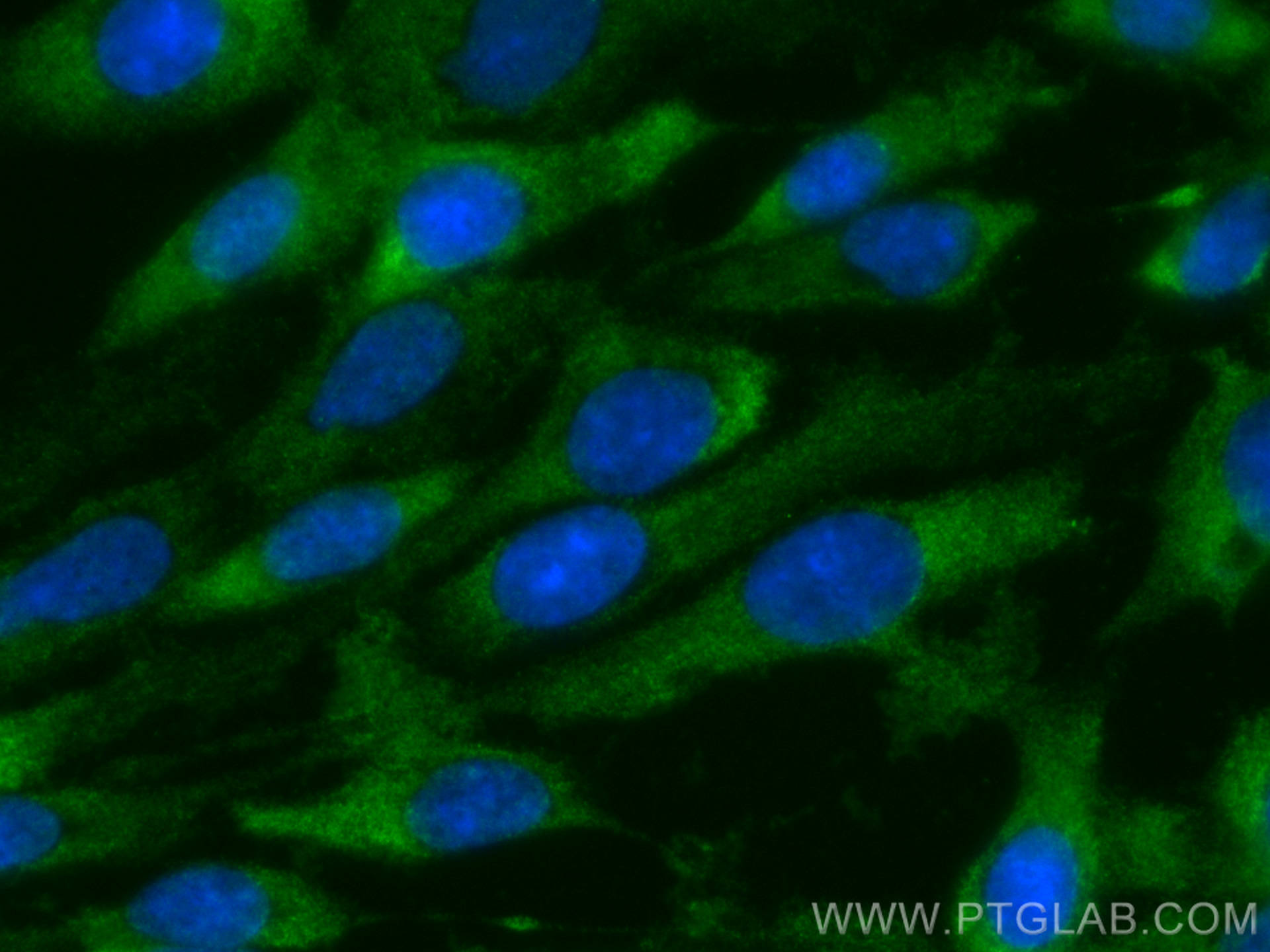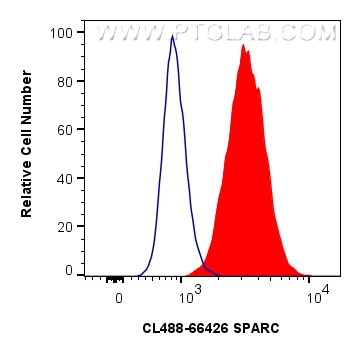Tested Applications
| Positive IF/ICC detected in | C6 cells |
Recommended dilution
| Application | Dilution |
|---|---|
| Immunofluorescence (IF)/ICC | IF/ICC : 1:50-1:500 |
| It is recommended that this reagent should be titrated in each testing system to obtain optimal results. | |
| Sample-dependent, Check data in validation data gallery. | |
Product Information
CL488-66426 targets SPARC in IF/ICC applications and shows reactivity with human, Rat samples.
| Tested Reactivity | human, Rat |
| Host / Isotype | Mouse / IgG2a |
| Class | Monoclonal |
| Type | Antibody |
| Immunogen | SPARC fusion protein Ag7390 Predict reactive species |
| Full Name | secreted protein, acidic, cysteine-rich (osteonectin) |
| Calculated Molecular Weight | 35 kDa |
| Observed Molecular Weight | 38 kDa, 52 kDa |
| GenBank Accession Number | BC004974 |
| Gene Symbol | SPARC |
| Gene ID (NCBI) | 6678 |
| RRID | AB_3672912 |
| Conjugate | CoraLite® Plus 488 Fluorescent Dye |
| Excitation/Emission Maxima Wavelengths | 493 nm / 522 nm |
| Form | Liquid |
| Purification Method | Protein A purification |
| UNIPROT ID | P09486 |
| Storage Buffer | PBS with 50% glycerol, 0.05% Proclin300, 0.5% BSA, pH 7.3. |
| Storage Conditions | Store at -20°C. Avoid exposure to light. Stable for one year after shipment. Aliquoting is unnecessary for -20oC storage. |
Background Information
SPARC, also known as ON (Osteonectin) or BM-40 (Basement-membrane protein 40), is an extracellular glycoprotein with the calculated molecular mass of 35 kDa and the apparent molecular mass of 40-43 kDa and 50 kDa (PMID: 7495300, 12365801). SPARC belongs to a group of matricellular proteins defined as secreted components that do not contribute directly to the formation of structural elements but serve to modulate cell-matrix interactions and cellular functions (PMID: 7542656; 12231357). SPARC is expressed at high levels in bone tissue, is distributed widely in many other tissues and cell types, and is associated generally with tissues undergoing morphogenesis, remodeling and wound repair (PMID: 10567433). It elicits changes in cell shape, inhibits cell-cycle progression, and influences the synthesis of extracellular matrix (PMID: 12721366). Altered expression of SPARC has been reported in a variety of cancers, which include breast, ovarian, colorectal, and pancreatic cancer as well as melanoma and glioblastomas (PMID: 18849185).
Protocols
| Product Specific Protocols | |
|---|---|
| IF protocol for CL Plus 488 SPARC antibody CL488-66426 | Download protocol |
| Standard Protocols | |
|---|---|
| Click here to view our Standard Protocols |





